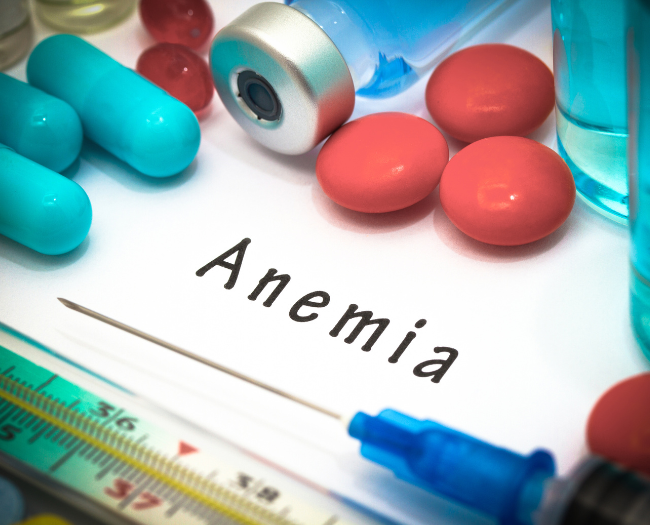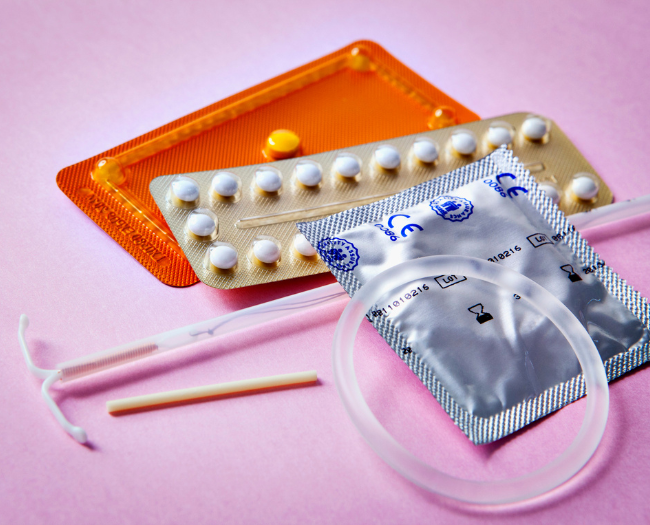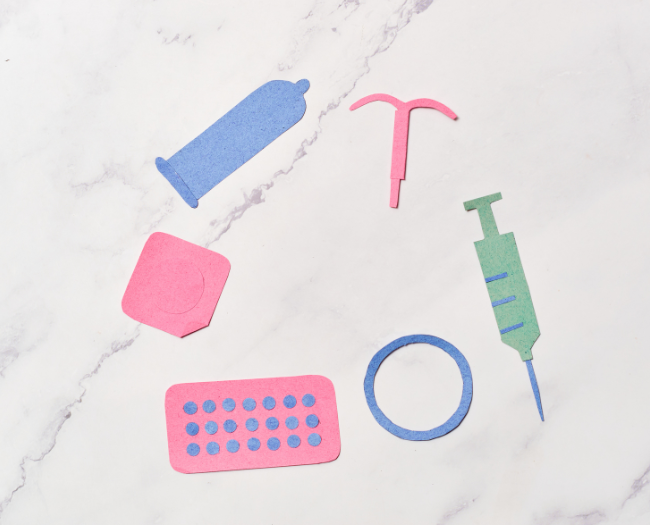Can birth control pills cause iron deficiency? Birth control pill use has been linked to lower monthly blood losses, which can lessen the risk of anemia and iron insufficiency in women. Women use birth control pills for various reasons other than pregnancy prevention, as the synthetic hormones in oral contraceptives have been demonstrated to offer additional health advantages. Some women use birth control tablets to treat acne, menstrual cramps, and excessive monthly flow.
Heavy blood loss during menstruation may contribute to iron deficiency anemia. Heavy menstrual bleeding, defined as a blood loss of 80 mL during one month’s cycle, affects 18-38 percent of women of reproductive age, according to research. However, due to underdiagnosis, the number of women assumed to have excessive menstrual bleeding is likely to be substantially greater. Prolonged heavy menstrual blood may result in diminished iron storage in women, especially if women do not consume enough dietary iron.
Does birth control affect iron levels

Birth control tablets have been shown to lessen the duration and volume of menstrual blood loss throughout the menstrual cycle, leading to lower iron losses. Contrary to popular belief, birth control users had greater serum iron levels than non-oral contraceptive users. According to some research, using birth control pills may harm a woman’s vitamin B6 level. Although vitamin B6 is a cofactor in heme production, no link between birth control pills and anemia has been demonstrated. Furthermore, women who used birth control tablets had much shorter menstrual periods than those who used other types of contraception, including IUDs.
Average daily iron intake from foods and supplements is 13.7–15.1 mg/day for 2–11-year-olds, 16.3 mg/day for 12–19-year-olds, 19.3–20.5 mg/day for men, and 17.0–18.9 mg/day for women over 19. Pregnant women consume 14.7 mg/day on average.
Is birth control affecting my risk of iron deficiency anemia

It’s possible. Hormonal birth control methods, such as the pill, patch, injection, or intrauterine hormonal device (IUD), are frequently used to treat women with heavy monthly periods. Lighter menstrual cycles may lower your risk of iron deficiency anemia. In addition, the non-hormonal copper IUD (Paragard) may increase your menstrual flow. It increases your chances of developing iron-deficiency anemia. Consult your doctor or nurse about your risk of anemia and whether hormonal birth control can be beneficial.
Does the use of contraception increase my risk for other health issues

It depends on your overall health and the birth control you take. Consult your doctor to determine the best type of birth control for you.
The health risks and adverse effects of various kinds of birth control vary. The following birth control techniques raise your chance of health problems:
- Hormonal contraception- Birth control tablets that include estrogen, progesterone, and other hormonal birth control, such as the skin patch or vaginal ring, may increase your risk of blood clots and hypertension. Blood clots and excessive blood pressure can cause a heart attack or stroke. A blood clot in your legs can travel to your lungs, causing significant damage or even death. Although these are major adverse effects of hormonal birth control, they are uncommon.
- Spermicides– (used alone or with the cervical cap, sponge, or diaphragm). Nonoxynol-9 spermicides might irritate the vagina. It might increase your chances of contracting HIV. Use nonoxynol-9 spermicides only if you are in a monogamous relationship (you only have sex with each other) with an HIV-negative male. In addition, medications used to treat yeast infections of the vaginal tract can potentially reduce the effectiveness of spermicides.
- Intrauterine devices (IUDs)- IUDs might marginally increase your chances of having an ectopic pregnancy. An ectopic pregnancy occurs when a fertilized egg implants outside the uterus (womb), most commonly in one of the fallopian tubes. Ectopic pregnancy is a significant medical condition that you must address immediately. IUDs can pose an extremely rare but dangerous uterine infection or puncture risk.
Does taking iron supplements while on birth control pose any risks

Women’s iron levels can be raised by birth control. Women should not take iron supplements while on the pill unless authorized to do so by a healthcare physician. An overabundance of iron in the blood can cause nausea, vomiting, and stomach discomfort. Chronic iron excess can be harmful if not treated.
Best birth control for people with iron deficiency anemia

Anemia is a frequent health disease with symptoms ranging from slightly unpleasant to severe and life-threatening. Anemia is caused by a shortage of iron in the body. Various circumstances can cause this deficit, but it is most commonly caused by a low-iron diet or blood loss.
Individuals who are suffering from anemia lack hemoglobin, the oxygen-rich protein found in red blood cells. When the body lacks iron, it is unable to manufacture hemoglobin. It, in turn, stops oxygen from reaching the rest of the body, resulting in anemia.
On the other hand, birth control, often known as contraception, refers to any procedure, drug, or technology used to prevent a woman from becoming pregnant. Women have a number of birth control alternatives available to them. Certain individuals are more successful than others when it comes to avoiding pregnancy. The method of birth control you take is determined by your health, desire to have children now or in the future, and desire to avoid sexually transmitted illnesses.
You can use hormonal birth control to manage an individual’s cycle by suppressing menstruation totally or temporarily until the patient’s iron levels have been replenished. Even if it is not taken constantly, it is frequently associated with lighter periods due to decreased uterine lining buildup.
What methods of birth control are available

Your contraceptive choices include:
Barrier techniques. Examples include the diaphragm, cervical cap, contraceptive sponge, male and female condoms, and more.
- Fertility awareness techniques- These procedures use cervical mucus and basal body temperature to determine ovulation days. To avoid pregnancy, you use a barrier device or avoid intercourse on fertile days.
- Hormonally long-acting techniques- Hormonal IUD (Mirena, Skyla, Kyleena, etc.), copper IUD (ParaGard), contraceptive implant (Nexplanon). Depending on the device, these operations stay effective for three to ten years after implantation or until you remove the device.
- Short-acting hormonal techniques- Contraceptives include pills, the NuvaRing vaginal ring, the Xulane skin patch, and injections (Depo-Provera). Short-acting because they must be applied daily, weekly, or monthly.
- Sterilization- This is a technique of birth control that is long-term. Examples include vasectomy for males and tubal ligation for women.
- Spermicide or vaginal gel These birth control methods are non-hormonal. Spermicide is a form of contraception that either kills or prevents the movement of sperm. Sperm cannot reach an egg to fertilize it because sperm are prevented from traveling by the vaginal pH regulator gel (Phexxi). Before having intercourse, you apply these items on the vagina.
It’s also crucial to be aware of emergency contraception, which may be used to prevent pregnancy after unsecured intercourse. Examples include the morning-after pill (Plan B One-Step, Aftera, ella, and others).
What is the most efficient contraceptive technique for anemia

Iron deficiency can be treated or prevented with a hormonal IUD, tablet, patch, ring, or injection. On the other hand, the copper IUD might cause heavier periods and should not be used by iron-deficient people.
Combination birth control tablets (those that include both estrogen and progestin) are the most successful at avoiding or shortening menstrual cycles. Individuals over 35 who smoke or have a history of blood clots should avoid using combined birth control. Instead, a progestin-only tablet could be a better choice.
Birth control pills can diminish monthly menstrual blood loss and directly affect women’s iron status.
Don’t forget to share your thoughts about this blog and read the related blog: Myths About Birth Control Pills: What You Need To Know

